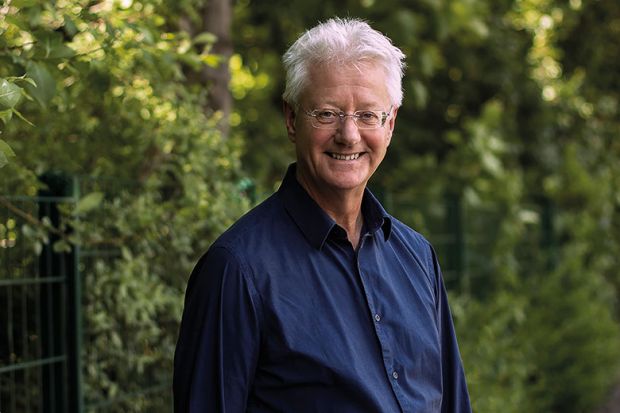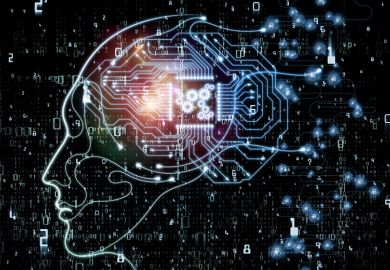Peter van der Veer is a director of the Max Planck Institute for the Study of Religious and Ethnic Diversity in Göttingen, Germany. An anthropologist specialising in religion and nationalism in Asia and Europe, his work has spanned subjects ranging from Hinduism in the Caribbean to the role of prayer in politics. He is also co-director of the new Max Planck Cambridge Centre for Ethics, Economy and Social Change, which launched earlier this year to pursue “fresh ethnographic research in fields of urgent concern to humanity”.
When and where were you born?
Groningen in the Netherlands in 1953.
What was Dutch society like then?
The area that I was born in was deeply religious. Social life and civil society were arranged entirely according to religious affiliation – so I was born [into] a form of Dutch Reformed Protestantism and that means that your schooling is in that community; the baker and butcher are members of your church and so on. I have never been a believer. As soon as I started to have thoughts about these things, about the age of eight, I thought that it was not very plausible, the whole thing.
How has this religious upbringing shaped your work?
It made the entire secularisation paradigm of the 1970s completely implausible to me, because in a very well-developed industrial society such as the Netherlands, industrialisation was supposed to lead to secularisation [but] it hadn’t happened at all.
How did your interest in Indian languages and culture begin?
I had, as you would now say, a gap year after high school and went to India overland, like many people of my generation, to explore the world. I hitch-hiked to Turkey and there was a “magic bus” – basically for hippies – that went to Delhi. I encountered a world for which I was totally unprepared – it was an entirely different way of looking at things and arranging things. There are so many temples and rituals; even when you sit on a train, people perform rituals. I had never read anything about it – it was an enormous experience for me, so when I came back, I decided to study Sanskrit.
You spent two years at Ayodhya, a Hindu pilgrimage centre in northern India, during your PhD. What was that like?
The first time I went, it was a festival day and it was just overwhelming – it was like I was in a Hieronymus Bosch painting of the Middle Ages, a combination of magic and rituals. I lived with a Brahmin family, who at first put me in a shed, outside the house, because I was a polluting foreigner. But by the end of the year, I was sitting next to the patriarch, who had become a very good friend and a research assistant – we did quite a few interviews together. Until his death, we were very close and we corresponded a lot.
What is most misunderstood about contemporary religion?
The Western academy has become very secular and does not see religion as an object for study. They still think this is a phenomenon that will pass, is irrational and should not be there. That has always surprised me because I don’t see a very sharp distinction between a secular mindset and a religious mindset. If people think society and democracy are founded on rational deliberation and rational choice, then they should look around a little bit more, because that’s simply not the case.
Will we be talking about religion at the end of the 21st century?
It is a lesson to look at regimes that have tried to destroy religion. I’ve looked at communist regimes in China, Vietnam and eastern Europe. They are big, powerful socialist systems that tried to kill priests [and] destroy churches and temples, for very long periods. But what do we see in these places? As soon as the repression lessens, religion re-emerges even stronger. The idea that China is secular, people should forget.
Does religious tolerance have a future?
The whole immigrant situation in Western Europe and increasingly in the US has become religionised – so instead of an ethnic division, it has become a religious division between Islam and Christianity. We are now in a period that is clearly less tolerant than when I grew up. When you go a little bit into the countryside of Poland, Ukraine and Russia, you will find headscarves everywhere – and that was also the case in the Netherlands until the Second World War. But we seem to have forgotten this whole history and secular society has become less tolerant of women wearing headscarves.
Does studying other religions and cultures always make you more tolerant?
I think that it does not make that much difference whether people know, through schooling, what the differences are. However, differences between people can become politicised and that creates much more tension than the direct interaction between people. Because of populist, anti-immigrant campaigns, people start to interpret their worlds around them as much more threatening.
Can you divide your life into a ‘before’ and ‘after’?
In the early 2000s, I went to China, lived there and started to learn Chinese. It has been an enormous eye-opener to see a huge society – similar in size to India – operating on very different principles, which makes you reflect on what you have seen in India. That has become my work now – it’s all comparative work between India and China.
David Matthews
Appointments
The foundation dean of Kent’s first medical school – a partnership between the University of Kent and Canterbury Christ Church University opening in September 2020 – has taken up his role. Chris Holland joined the Kent and Medway Medical School from the University of Surrey, where he was a professorial teaching fellow and director of learning and teaching for medicine. He is also an NHS consultant. Professor Holland said that the medical school, which will offer 100 undergraduate medical places a year, will “help address some systemic workforce issues in the region, offering training and development opportunities, which will help attract and retain medical professionals, as well as ensure that our talented local students have access to medical training through our commitment to widening participation and opening up access to medical education”.
The University of Pennsylvania has appointed Benoit Dubé as its first chief wellness officer, the first such appointment among Ivy League institutions. He currently serves as director of wellness initiatives, assistant dean for diversity and inclusion, and director of medical student education in psychiatry at Penn’s Perelman School of Medicine. Dr Dubé will oversee an integrated new division of Student Wellness Services that includes the Offices of Alcohol and Other Drug Program Initiatives, Campus Health, Counseling and Psychological Services, Penn Violence Prevention, and the Student Health Service. Wendell Pritchett, Penn provost, said: “Benoit’s empathy, energy, and vision will be invaluable as President [Amy] Gutmann and I expand our focus on wellness as a core value of the Penn experience.”
David Plumb has been appointed to the new role of director of innovation at the University of Warwick. Mr Plumb, who will take up the role in September, has served as chief digital officer at O2. Stuart Croft, Warwick vice-chancellor, said: “David’s expertise in translating ideas and innovation into transformational, business development and growth in a number of major companies will, I have no doubt, be equally transformational here at Warwick.”
A world-leading oncologist will join the University of Sheffield to work on translational cancer research. Thomas Helleday will leave the Karolinska Institute to return to the University of Sheffield as a chair of translational oncology, after first coming to its medical school to conduct postdoctoral research in the late 1990s.




